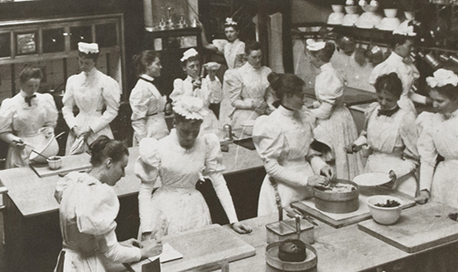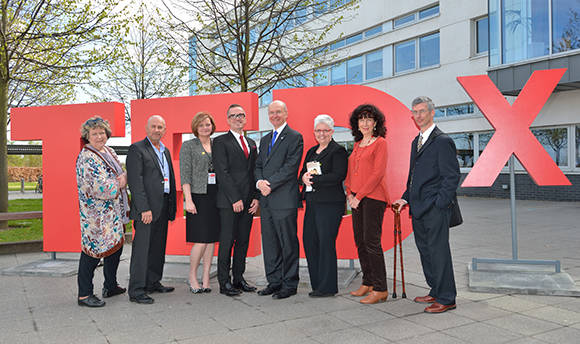A graduate’s experience in occupied Jersey during the Second World War
The 1945 edition of the Edinburgh College of Domestic Science magazine tells us that in June 1940, an alum, J.W. Fraser, returned to Jersey from a London holiday, unaware the island would soon be cut off from the mainland. Within days, German planes bombed the harbour, and soon, the white flag flew over Jersey. Notices promised civilians their "liberty and possessions" would be respected, but it was clear this was empty propaganda.
By July, she was tasked by the States Committee of Essential Commodities with organising a communal kitchen to serve at least 100 meals daily. Despite no prior experience, limited resources, and the need for secrecy to outmanoeuvre German requisitioning, she succeeded in opening the kitchen, but with only 14 customers on the first day. Over time, demand skyrocketed to over 500 meals a day. By its closure in June 1945, the kitchen had served more than 715,000 meals to the starving population.
The challenges were staggering. Ingredients were scavenged from damaged supplies—macaroni dropped on docks, spoiled bread, and even soggy carrots rescued from the sea. Ersatz ingredients like potato flour and washing soda became staples, as traditional goods like bread and meat were severely rationed. Fuel and electricity dwindled, and by 1944, food was cooked in a makeshift gas-powered garage kitchen.
The island endured harsh winters, scarce rations, and the deportation of British-born civilians. Despite all this, the people of Jersey persevered. On Liberation Day in May 1945, the Union Jack returned, signalling the end of five years of occupation. For Fraser, it was an unforgettable chapter, marked by hardship, resilience, and relief that such a time might never come again.



